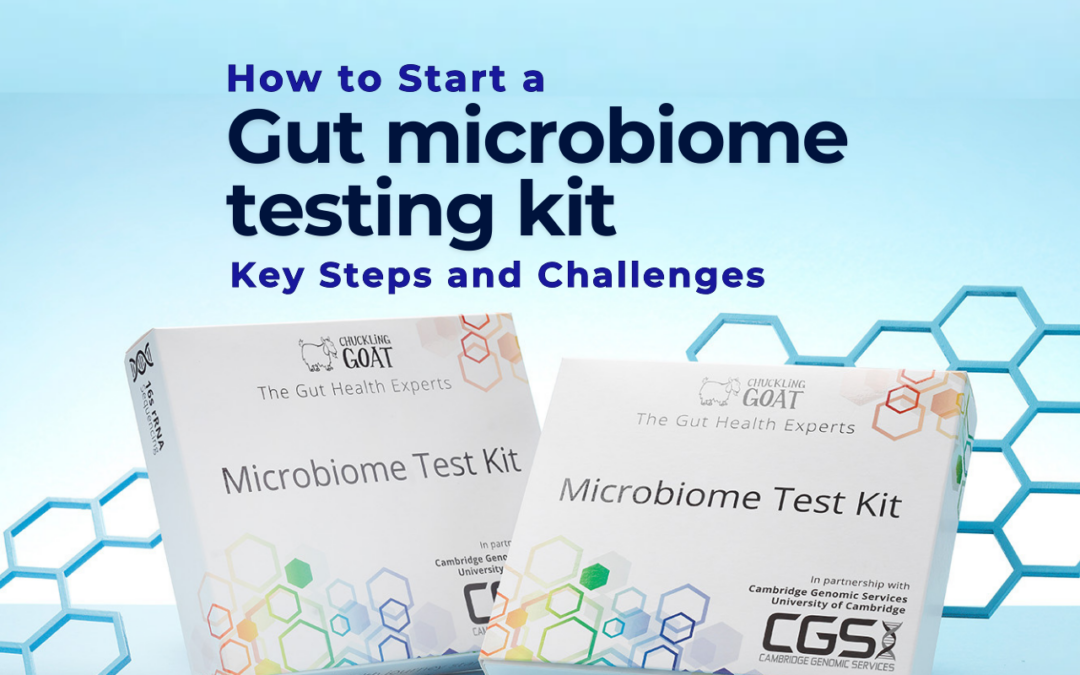In recent years, the health and wellness industry has witnessed a significant shift towards personalized healthcare solutions. One of the most groundbreaking advancements in this field is the rise of gut microbiome testing kits. These kits provide valuable insights into an individual’s gut health, influencing not only digestive well-being but also overall health, including mental health, immunity, and chronic disease management. With growing consumer interest and technological advancements, the gut microbiome testing kit business presents an exciting opportunity for entrepreneurs. This comprehensive guide will explore how to start a gut microbiome testing kit business, key steps and challenges, market trends, opportunities, and lessons from successful startups.
How to Start a Gut Microbiome Testing Kit Business: Key Steps and Challenges
Key Steps to Launch Your Business
- Market Research and Validation:
- Conduct thorough research to understand the target audience’s needs, including health enthusiasts, clinicians, wellness centers, and individuals with chronic health conditions.
- Analyze competitors to identify gaps in the market, potential opportunities, and unique selling propositions (USPs).
- Utilize surveys, focus groups, and online forums to gather feedback and validate your business idea.
- Regulatory Compliance:
- Ensure compliance with health regulations and certifications such as FDA approval, CE marking, and ISO standards, depending on your target market.
- Consult legal experts to navigate data privacy laws, especially concerning genetic information and patient health data under regulations like HIPAA and GDPR.
- Product Development:
- Collaborate with microbiologists, geneticists, and lab technicians to create reliable, accurate, and user-friendly testing kits.
- Design a simple and hygienic sample collection process with clear instructions to enhance user experience.
- Develop robust laboratory protocols to ensure high-quality DNA sequencing and data accuracy.
- Partnerships with Certified Laboratories:
- Establish partnerships with accredited laboratories that comply with regulatory standards and possess advanced sequencing technologies.
- Ensure labs have the capacity to handle sample volumes as your business scales.
- Technology and Data Analytics:
- Invest in advanced data analysis software and bioinformatics tools to interpret gut microbiome data accurately.
- Build a secure, user-friendly digital platform or mobile app for customers to access their results, personalized recommendations, and health-tracking features.
- Marketing and Distribution:
- Develop a comprehensive marketing strategy that includes SEO, content marketing, social media campaigns, influencer partnerships, and email marketing.
- Explore various distribution channels, including e-commerce platforms, direct-to-consumer models, partnerships with health clinics, and retail outlets.
- Offer educational content to raise awareness about the importance of gut health and the benefits of microbiome testing.
Challenges to Consider
- Regulatory Hurdles: Navigating complex healthcare regulations, obtaining necessary certifications, and ensuring compliance with data protection laws can be time-consuming and costly.
- High Initial Investment: Significant upfront costs related to research and development, laboratory partnerships, technology infrastructure, marketing, and legal compliance.
- Consumer Trust: Building credibility and trust through transparent business practices, scientific validation, and clear communication about data privacy and security.
- Data Security: Safeguarding sensitive genetic and health information against breaches, ensuring compliance with data protection regulations, and maintaining robust cybersecurity measures.
- Market Competition: Differentiating your brand in an increasingly competitive market by offering unique value propositions and superior customer experiences.
The Growing Market for Gut Microbiome Testing Kits
Market Trends
- Rising Health Awareness: There is a growing consumer interest in personalized health solutions driven by increased awareness of the connection between gut health and overall well-being.
- Technological Advancements: Rapid advancements in DNA sequencing technologies have significantly reduced costs, improved accuracy, and made microbiome testing more accessible to consumers.
- Integration with Digital Health: The proliferation of health apps, wearables, and digital health platforms complements microbiome data, enabling comprehensive health monitoring and personalized insights.
- Focus on Preventive Healthcare: Consumers are shifting towards preventive healthcare, seeking proactive solutions to manage health risks and improve quality of life.
- Expansion of Direct-to-Consumer (DTC) Models: The rise of DTC healthcare services allows companies to reach consumers directly, bypassing traditional healthcare channels.
Opportunities
- Personalized Nutrition: Collaborate with dietitians, nutritionists, and wellness coaches to offer personalized dietary plans based on gut microbiome data.
- Global Expansion: Tap into emerging markets with growing healthcare infrastructures and increasing consumer awareness of personalized health solutions.
- Subscription Models: Offer recurring testing services with continuous health tracking, personalized recommendations, and progress reports to create a steady revenue stream.
- Corporate Wellness Programs: Partner with businesses to integrate microbiome testing into employee wellness programs, promoting health and productivity.
- Research Collaborations: Collaborate with academic institutions, healthcare organizations, and pharmaceutical companies for research and development projects.
The Future of Personalized Health: How Gut Microbiome Testing Kits Are Changing the Industry
- Precision Medicine: Gut microbiome insights are becoming pivotal in the development of personalized treatment plans for various health conditions, including digestive disorders, autoimmune diseases, mental health issues, and metabolic syndromes.
- Preventive Healthcare: Microbiome testing enables early detection of potential health issues, allowing individuals to make lifestyle changes and adopt preventive measures before symptoms manifest.
- Holistic Wellness: The integration of gut health insights with mental health, skin health, immune function, and chronic disease management promotes a holistic approach to well-being.
- Advancements in AI and Machine Learning: The use of AI and machine learning algorithms enhances the accuracy of microbiome data analysis, enabling more precise and actionable health insights.
- Customization of Probiotics and Supplements: Personalized probiotics and nutritional supplements tailored to an individual’s unique gut microbiome composition are emerging as a significant trend in the health and wellness industry.
- Expansion of Telehealth Services: Microbiome testing is becoming an integral part of telehealth consultations, providing healthcare professionals with valuable data to support virtual patient care.
Gut Health Startups: Lessons from Successful Microbiome Testing Kit Businesses
- Viome:
- Focus on personalized recommendations powered by artificial intelligence and advanced data analytics.
- Strong partnerships with healthcare professionals, research institutions, and wellness brands.
- Emphasis on continuous product innovation, scientific research, and customer education.
- uBiome (Before Its Closure):
- Rapid scaling highlighted the importance of ethical business practices, regulatory compliance, and transparent communication with stakeholders.
- Lessons learned from its downfall emphasize the need for robust governance, scientific integrity, and regulatory adherence.
- DayTwo:
- Success in targeting specific health conditions such as diabetes and metabolic disorders with personalized insights and actionable recommendations.
- Effective use of clinical research partnerships to validate scientific claims and enhance credibility.
Key Takeaways
- Transparency: Clear communication about data usage, scientific validation, and business practices is crucial for building consumer trust and credibility.
- Continuous Innovation: Investing in research and development, staying updated with the latest scientific advancements, and adapting to market trends are essential for long-term success.
- Customer-Centric Approach: Prioritize customer satisfaction by offering value-added services beyond testing kits, such as health coaching, personalized plans, educational resources, and responsive customer support.
- Ethical Practices: Uphold ethical standards in data management, marketing, and scientific research to maintain integrity and trust.
- Scalability: Develop scalable business models and operational strategies to accommodate growth and expand into new markets.
Conclusion
The gut microbiome testing kit business is at the forefront of the personalized health revolution. As consumer demand for personalized health insights continues to rise, entrepreneurs have a unique opportunity to make a significant impact in the health and wellness industry. By understanding the key steps, navigating regulatory challenges, leveraging market trends, and learning from successful startups, you can build a thriving gut microbiome testing kit business. The future of personalized health is bright, and with the right approach, your business can play a pivotal role in transforming how individuals manage their health and well-being.













